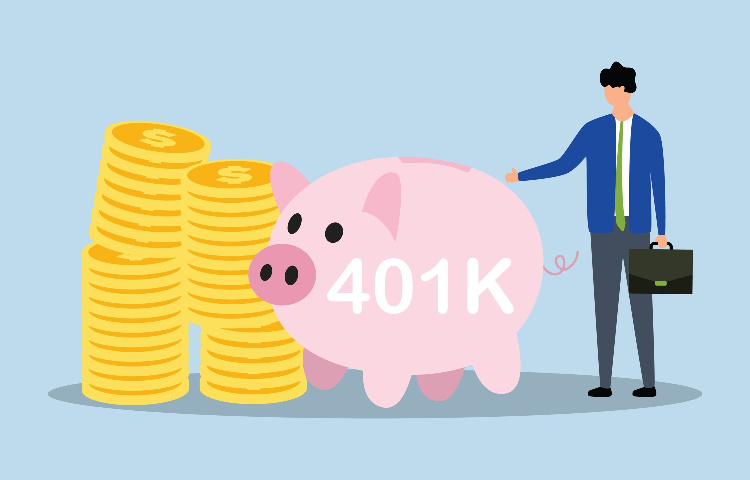Solo 401(k) Eligibility
If you’re a business owner with no full-time employees, or you earn self-employment income, you can establish a Solo 401(k). It is perfect for independent contractors, such as consultants, home businesses, and real estate agents. If you qualify, your spouse can also contribute as long as he or she is an employee of the business.
As long as self-employment income exists, you can establish a Solo 401(k). If you have a side gig, you can establish a Solo 401(k), even if you have a full-time job. Use your plan as a vehicle to save more money, generate greater tax deductions, or simply as an investment vehicle for real estate or other investments.
The Solo 401(k) plan may be adopted by an individual sole proprietor, or any other business entity, such as an LLC, corporation, or partnership. In general, in order to be eligible to benefit from the Solo 401(k) plan, one must meet just two eligibility requirements:
To be eligible to benefit from the Solo 401(k) plan, investors must meet two eligibility requirements:
- The presence of self-employment activity.
- The absence of full-time employees.
A Solo 401(k) is an IRS-approved retirement plan that is well-suited for businesses that either have no employees or no full-time employees, therefore are excluded from coverage. A Solo 401(k) plan is perfect for sole proprietors, consultants, or independent contractors. Individuals who have a full-time job are also eligible to open a Solo 401(k).
The Presence of Self-Employment Activity
Solo 401(k) eligibility includes the presence of “self-employment activity”. This refers to the ownership and operation of:
- A sole proprietorship
- Limited Liability Company (LLC)
- C Corporation, S Corporation
- Limited Partnership where the business intends to generate revenue for profit and make significant contributions to the plan
Related: Solo 401(k) Rollover vs. Contribution
Generate Revenue for Profit
IRS will consider you eligible for the plan if the business is legitimate and is run with the intention of generating profits.
Self-employment activity can be part-time, and it can be ancillary to full-time employment elsewhere. A person can even participate in an employer’s 401(k) plan in tandem with their own Roth 401(k) retirement plan. In such a case, the employee elective deferrals from both plans are subject to the single contribution limit.
There are no established thresholds for:
- Profit the business must generate
- How much money must be contributed to the plan
- When and how quickly the profits and contributions must occur
Related: How to Choose the Best Solo 401(k) Provider

The Absence of Full-Time Employees
Unlike a regular 401(k) plan, a Solo 401(k) retirement plan can be implemented only by self-employed individuals or small business owners with no other full-time employees. Additionally, they must not be employed by any business owned by them or their spouse. An exception applies if your full-time employee is your spouse.
The business owner and their spouse are technically considered “owner-employees” rather than “employees.”
*Did you know that individuals who participate in the Gig economy are eligible for a Solo 401(k)? Learn more about different side-jobs individuals can do to open a Solo 401(k).
Employees who are Excluded from Coverage
To maintain Solo 401(k) eligibility, the following types of employees may be generally excluded from coverage:
- Employees under 21 years of age
- Employees that work less than 1,000 hours annually
- Union employees
- Nonresident alien employees
Do you have full-time employees aged 21 or older (other than your spouse)? Do your part-time employees work more than 1,000 hours a year? If yes, you must typically include them in any plan you set up. However, a business eligible for the plan can have part-time employees and independent contractors.

Learn More: Solo 401(k) Prohibited Transaction Rules
*Did you know IRA Financial Solo 401(k) comes with a loan feature. While many 401(k) plans enable individuals to take loans, some providers exclude this feature from their Solo 401(k) plan. Many individuals have recently started a new business use a Solo 401(k) loan to invest in their new business venture.
Learn More:
Why Choose a Solo 401(k) vs. a SEP IRA?
Get in Touch
How to Fund a New or Existing Business with a Self-Directed IRA
Before using a Self-Directed IRA to invest in a new or existing business, you should be wary of the IRS…
Self-Directed IRA Contribution Limits
Each year, the IRS sets the Self-Directed IRA contribution limits. This is the maximum amount you may directly contribute…
2025 Solo 401(k) Contribution Limits
Each year, the IRS sets the Solo 401(k) contribution limits. This is the maximum amount you may directly contribute…
Saving for Retirement No Matter Your Age
Saving for retirement is a lifelong journey, one that requires unique strategies at each stage of life. Learn how to…
How SECURE Act 2.0 Changed the 401(k) Controlled Group Rules
There are several provisions from SECURE Act 2.0 that have impacted the controlled group rules for Solo 401(k) plans….
Discount Valuations for Family Limited Partnerships (FLPs)
Discount valuations in Family Limited Partnerships offer significant tax advantages by reducing the taxable value of transferred interests….















